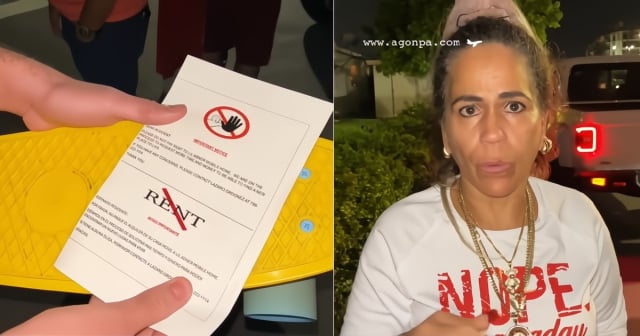This Thursday marked the third day of protests by families living in a mobile home park in Sweetwater, Miami-Dade, who are being forced to leave the land where their homes are located before May 2025 due to planned urban development in the area.
One of the main questions these families have is why mobile homes were still being sold just a few weeks ago if an eviction was in the works.
On the night of November 14th, some of those affected held a peaceful demonstration at a road intersection very close to their homes, asking the property owner and the local government to come forward.
The local mayor pledged to speak with the owner, but the land is private and the eviction does not seem to be reversible, as reported by Telemundo 51.
Following the announcement of the permanent closure of the Lil' Abner mobile home park, local residents have gathered to demand greater compensation for leaving their homes.
The park administration has offered a financial incentive of $14,000 to those who choose to vacate the property before January 31, 2025, although many residents consider this compensation insufficient to cover the costs of relocation.
"50 thousand dollars and no more than six months of rent," declared a Cuban woman in a TikTok video.
"We were deceived. In the six months they provided, the rent isn't being paid, and I won't leave for anything less than 50 thousand dollars. They allowed us to invest without warning that they would sell, because a sale like that doesn't happen overnight," added this resident, who threatened not to leave and to prevent her children from doing so as well.
The decision to close the Lil' Abner park caught residents by surprise, highlighting the strategic value of this land in a city where the real estate market is highly competitive and the demand for housing continues to rise.
The grounds of Lil' Abner Park have a prime location, just minutes away from universities, shopping centers, and other essential services in Miami-Dade. Its proximity to educational institutions such as Florida International University (FIU) and Miami Dade College, along with access to major thoroughfares and important transit hubs, makes this area appealing to developers and investors.
In a city facing challenges related to affordable housing and rising rental prices, these lands represent an opportunity to develop residential and commercial complexes that meet the high demand.
Additionally, the park offers health services and three shopping centers within a ten-minute drive, enhancing its value as a residential area. The proximity to Miami International Airport also contributes to the appeal of these lands for new urban development projects.
The development plan for the area, according to the park management, includes housing, medical facilities, a community center, and a public park, with the hope of providing long-term benefits to the community.
Filed under:
